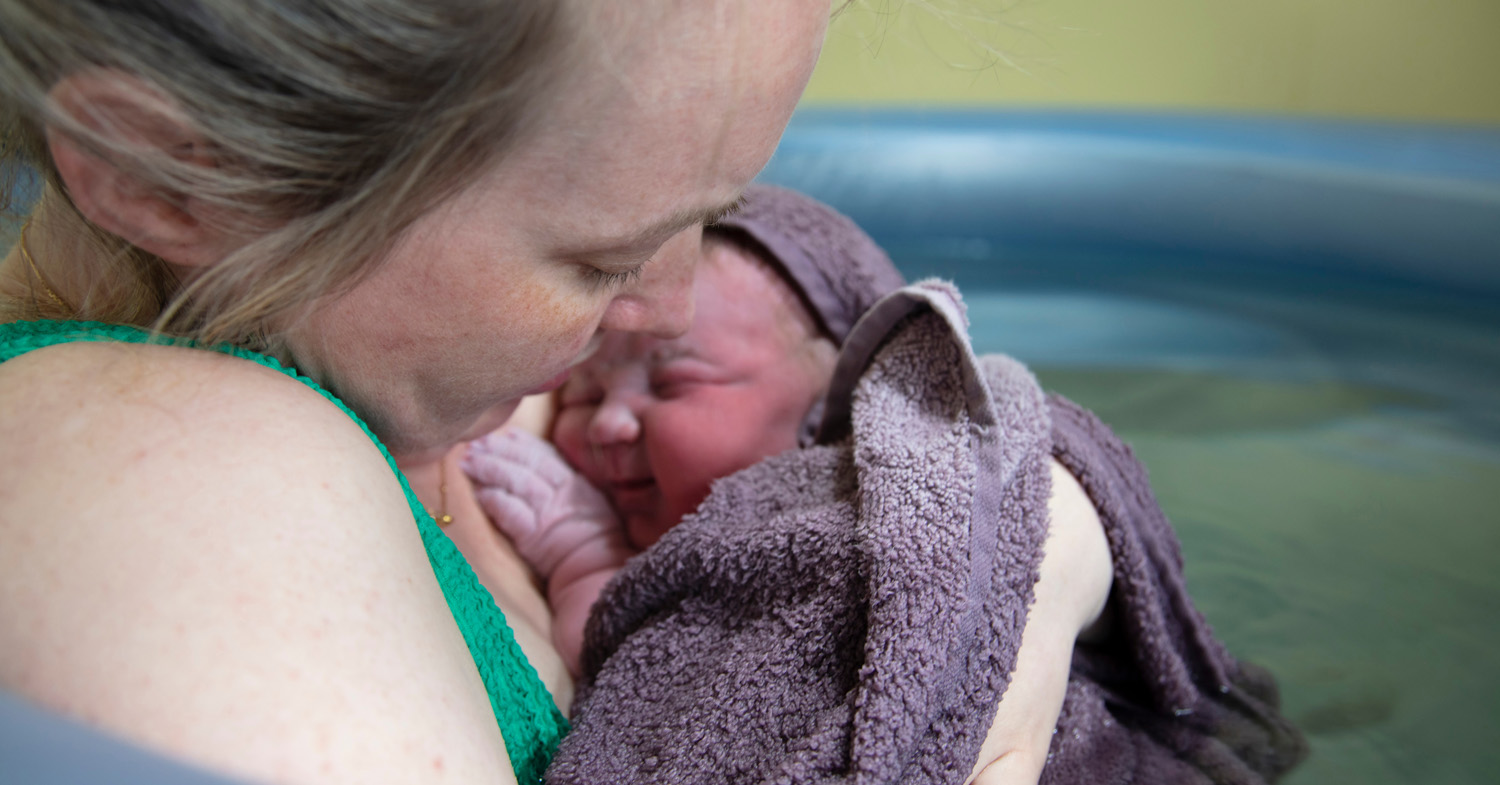Researchers at Aurora Sinai Medical Center in Milwaukee have launched a pilot clinical trial for healthy women with low-risk pregnancies that explores waterbirth as a method to control pain throughout the labor and delivery process and improve outcomes for mom and baby.
During waterbirth, a pregnant woman immerses her body in a pool of warm water to increase comfort and reduce pain. The water creates buoyancy resulting in an improved ease of movement and the ability to position the body more comfortably.
“Waterbirth has been in use around the world for more than 50 years, and one major advantage is that it’s medication-free,” said Emily Malloy, CNM, certified nurse midwife and the study’s principal investigator. “Although more clinical trials are needed in the U.S., previous research has demonstrated numerous potential benefits, such as reduced pain, decreased rates of tissue tearing, lower blood pressure, improved mobility and upright positions, and increased comfort, relaxation and satisfaction. Waterbirth has also shown potential benefits for newborns, including reduced exposure to maternal pain medications, increased breastfeeding rates, and initiation of bonding with skin-to-skin contact immediately after delivery.”
Over the course of the clinical trial, researchers plan to enroll 120 healthy women at or around the 28th week of their low-risk pregnancy. After joining, research participants are randomly assigned to either the waterbirth or land birth group. Those in the land birth group receive the standard of care provided by midwives and obstetricians. Those in the waterbirth group also receive standard of care but with the option to give birth in water. Randomization is a 2:1 design, which means approximately two-thirds of the participants are assigned to the waterbirth group.
Researchers are analyzing data to explore differences between the groups for the type and quantity of pain relief measures utilized, maternal and neonatal health outcomes, and participant satisfaction with the labor and delivery experience. Research participant satisfaction is measured before discharge home via a validated questionnaire, and a newborn check is conducted with mom via telephone survey between four to eight weeks post-delivery.
“This is an important trial to evaluate an approach that may be helpful in reducing unnecessary interventions during labor and childbirth for women with low-risk pregnancies,” said Cheryl Lefaiver, PhD, RN, director of the Center for Child and Family Research at Advocate Aurora Research Institute. “We’re proud to support clinical trials focused on discovering best care practices to improve health outcomes for the families we serve.”
Advocate Aurora Health clinical trial co-investigators include Jessica Kram, MPH, Natasha Hernandez, MD, MaryAnne Scherer, CNM, Marie Forgie, DO, Lisa Hanson, PhD, CNM, and James Adefisoye, with support from the Aurora UW Medical Group (AUWMG) midwifery group. Diana Kleber, BSN, serves as the study’s research coordinator.
The clinical trial, “Hospital Waterbirth: A pilot randomized control trial,” is sponsored by Advocate Aurora Health Graduate Medical Education Research through the AUWMG Faculty Research Fund.
To learn more about Advocate Aurora’s research, visit aah.org/research.
About Advocate Aurora Research Institute
Advocate Aurora Research Institute is a not-for-profit, limited liability company of Advocate Aurora Health. Advocate Aurora has emerged as a national destination for patient-centered bench, translational and clinical research, and the Research Institute unifies the innovative research efforts throughout the health system. Advocate Aurora researchers focus on rapidly translating new discoveries from the scientist’s bench to the patient’s bedside and into the community we serve to improve options and outcomes that change not only the lives of individuals, but transform the health of populations.
